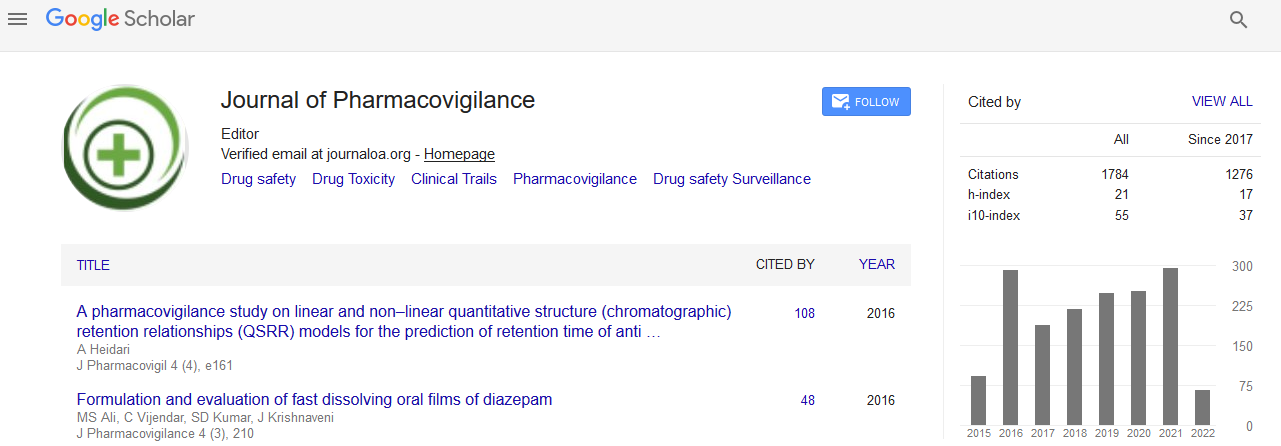Indexed In
- Open J Gate
- JournalTOCs
- The Global Impact Factor (GIF)
- RefSeek
- Hamdard University
- EBSCO A-Z
- OCLC- WorldCat
- Publons
- Euro Pub
- Google Scholar
Useful Links
Share This Page
Journal Flyer

Open Access Journals
- Agri and Aquaculture
- Biochemistry
- Bioinformatics & Systems Biology
- Business & Management
- Chemistry
- Clinical Sciences
- Engineering
- Food & Nutrition
- General Science
- Genetics & Molecular Biology
- Immunology & Microbiology
- Medical Sciences
- Neuroscience & Psychology
- Nursing & Health Care
- Pharmaceutical Sciences
Abstract
Potential Impairment of Hypoglycemic Control Associated with Drug Interactions: A Look at Closer Management Needs for Diabetes Mellitus
M Gossell-Williams, J Williams-Johnson and S Mc Leary
Objectives: One of the main adverse drug reactions presenting to emergency departments is drug induced hypoglycemia in diabetes mellitus patients. The aim of this study was to determine factors, other than lack of compliance with dietary requirements that could be increasing the risk of hypoglycemia among these patients.
Methods: A prospective, observational study was conducted from September 2009 to January 2010 collecting information on all diabetes mellitus patients confirmed to be experiencing hypoglycemia presenting to the Accident and Emergency Department of The University Hospital of the West Indies. Data collected included name of drug implicated and co-administered drug information. Compliance with drug therapy was confirmed. Pubmed search conducted identified peered review papers providing evidence of drug interactions established to increase risk of hypoglycemia.
Results: Eighteen patients were identified for the time period. Most patients (72.2%) were 65 years and older and most (66.7%) were also taking co-administered drugs. A total of 37 combinations in 12 of the patients known to potentiate hypoglycemia were identified. These included aspirin (13 cases), angiotensin converting enzyme inhibitors (12 cases) and beta-adrenoreceptor blockers (6 cases).
Conclusions: Most of the patients presenting with drug induced hypoglycemia were at increased risk of experiencing this adverse event from their prescribed drug combinations. Therefore drug induced hypoglycemia in patients on antidiabetic therapy may not only be associated with non-compliance and patient assessment should review the risk of the combination to the maintenance of glycemic control.
The significant finding of the study: Most of the diabetes mellitus patients presenting with drug induced hypoglycemia (66.7%) were on drug combinations with increased risk of this adverse drug reaction. This study provides evidence of a need for physicians to have easy access to drug interaction information that can facilitate assessment of risk to glycaemic control in diabetic mellitus patients.


